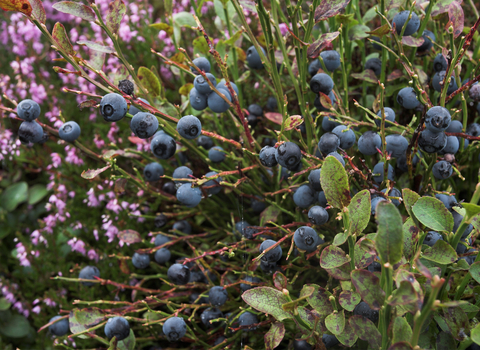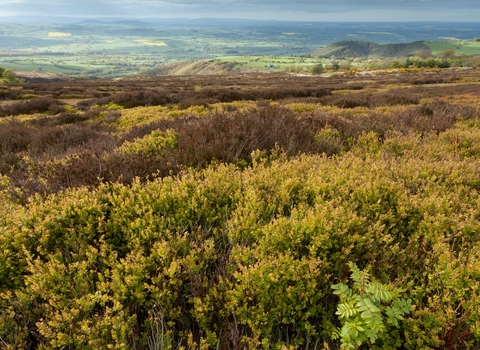
Ben Osbourne
Bilberry
Bilberries appear in summer and early autumn and are often turned into jams, pies and sauces...
Scientific name
Vaccinium myrtillusWhen to see
The best time to find bilberry is during the summer and early autumn months.Species information
Category
Statistics
Height: 45cm+Least concern. Bilberry is a common species, but since 2007, some of the UK plants have suffered with a fungal attack from Phytophthora kernoviae.
Habitats
About
Bilberries are found natively across northern Europe, Iceland and across the Caucasus into northern Asia. In June, small pink bell-shaped flowers appear and by August, the small bushes are covered in bilberries, which are commonly harvested to make jams, pies and sauces. Bilberries are similar to blueberries, but have red inner flesh rather than white flesh. They have a number of different names across geographical regions: blaeberry in Scotland, whortleberry, wimberry, whinberry and urts in other parts of the UK.How to identify
Bilberries grow on low bushes with solitary blue-black fruits, and are found wild in heathland in the northern Hemisphere.Distribution
Common across the UK on suitable acidic soils.In our area
Bilberries are known as Whimberries in Shropshire. They are abundant on the Stiperstones National Nature Reserve and grow around the edges of Nipstone Rock reserve. The berries are used to make jams and pies, but were also historically collected to use in the treatment of a range of illnesses.
Did you know?
Vaccinium myrtillus has been used for nearly 1,000 years in traditional European medicine. Bilberries are used for treatment of disorders of the gastrointestinal tract and diabetes.Bilberries are known as Whimberries in Shropshire. They are abundant on the Stiperstones National Nature Reserve and grow around the edges of Nipstone Rock reserve. The berries are used to make jams and pies, but were also historically collected to use in the treatment of a range of illnesses.

